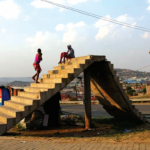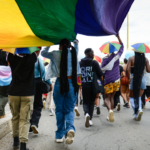Thato Ramafu
Youth unemployment in Lesotho stands at a concerning 38 percent, with young women facing an even more acute rate of 41 percent. This crisis is not unique to the Mountain Kingdom; across Africa, countries such as Eswatini and South Africa report youth unemployment levels above 50 percent.
These statistics reflect a deeper issue, the disconnect between education systems, labour markets, and the rapid evolution of career landscapes worldwide. While hundreds of students graduate annually in Lesotho, formal employment opportunities remain limited, leaving a significant proportion of the population underutilised and underprepared for the future of work.
A rapidly changing world of work
Globally, the nature of employment is undergoing seismic shifts. Technological advancements, especially in artificial intelligence (AI), are reshaping the skills that matter. As Wharton professor Ethan Mollick has emphasised, workers must learn to collaborate with AI rather than fear its encroachment. The future of work will favour agility, the ability to adapt, learn continuously, and use digital tools effectively.
In this evolving environment, career paths that will remain relevant over the next decade and beyond are increasingly defined by flexibility and innovation. Content creation, for example, has emerged as a legitimate and thriving profession. Digital platforms such as YouTube, TikTok, Substack and podcasting networks now support millions of careers globally.
The green economy is also gaining momentum, requiring professionals who understand sustainability and climate resilience. Meanwhile, technical and vocational skills continue to underpin industries and infrastructure, offering reliable and future-proof employment.
Reimagining career expos
Despite these shifts, career expos, in Lesotho and elsewhere, too often remain anchored in outdated models. They tend to highlight traditional professions such as law, teaching, and finance, while neglecting the burgeoning digital and entrepreneurial sectors that young people are increasingly drawn to. This is a missed opportunity.
To be impactful, career expos must evolve into dynamic, future-oriented experiences. They should introduce young people to the digital economy, creative industries, and innovation hubs. Fields like digital marketing, coding, online branding, and e-commerce deserve strong representation.
It would be especially powerful to see corporates make space for young success stories such as Arnold Mohapi, a rising star in Lesotho’s creative and digital landscape, who exemplifies how passion, digital savvy and innovation can converge into a meaningful career. Such figures would provide invaluable insight and inspiration, showing attendees that it is not only possible to succeed in new industries but that the path is already being paved by Basotho talent.
Young people should be able to engage with online career platforms, understand freelance and remote work opportunities, and be equipped to access international markets from within their local context. Entrepreneurship, too, must be elevated as a desirable and realistic career choice, not just a fallback.
The digital divide in Lesotho
One of the greatest barriers to future-focused careers in Lesotho is the digital divide. Many young people remain excluded from online opportunities due to limited internet access, lack of digital literacy, and minimal exposure to financial technologies. For a generation that could easily plug into the global economy, these obstacles are both frustrating and entirely preventable.
To address this, Lesotho must prioritise investments in internet infrastructure and digital education. Ensuring that every young person can access affordable, reliable internet is not just a technological issue; it is a matter of national economic resilience.
Equally important is enabling youth to sign up for international platforms, including freelance sites, remote work portals, and digital learning ecosystems.
Supporting youth through policy and innovation
There are encouraging signs of progress. The Lesotho government’s allocation of M400 million for youth-led businesses signals a commitment to entrepreneurship and innovation. Moreover, youth-focused initiatives such as the Lesotho Youth Power Hub are playing a key role in empowering young people to take part in shaping national policies and solutions.
However, these efforts must be amplified and made sustainable. The private sector, particularly corporations and conventional businesses, must also recognise their role in shaping the future workforce. They can do this by participating in reformed career expos, supporting internship schemes in future-ready sectors, and helping bridge the skills gap through mentorship and training.
Global insights, local action
This issue is not confined to Lesotho or Africa. Globally, young graduates are questioning traditional career trajectories. In his influential book Moral Ambition: Stop Wasting Your Talent and Start Making a Difference, Dutch historian Rutger Bregman critiques the flow of top university graduates into finance and consulting, which he describes as the “Bermuda Triangle of talent”.
He challenges young people to pursue high-impact, meaningful careers that contribute to society, a call that resonates strongly in contexts like Lesotho, where the need for socially and economically transformative work is urgent.
Conclusion: A collective responsibility
Lesotho stands at a crossroads. With one of Africa’s youngest populations, the country has an opportunity to lead by example in redefining what career success looks like in an agile era. This will require a united effort, from government, educators, businesses and civil society, to ensure that the youth are not only prepared for the future of work but are empowered to shape it.
The PR and Brand Network is no stranger to this mission. As it celebrates its 10-year milestone, the organisation is soon hosting a pivotal Masterclass designed to bring together diverse voices in the same room, from internship applicants and media representatives to industry experts, influencers, local artists, and artist managers.
The event aims to create an engaging and empowering environment where attendees can gain critical knowledge, insights, and practical skills. The Masterclass will serve as a powerful platform to equip participants with the tools and expertise needed to thrive in the evolving worlds of PR, branding, and modern-day careers.
By embracing innovation, reforming traditional career guidance, and bridging the digital divide, Lesotho can unlock the full potential of its young people. The agile era is already here. It is time our systems caught up.
Summary
- While hundreds of students graduate annually in Lesotho, formal employment opportunities remain limited, leaving a significant proportion of the population underutilised and underprepared for the future of work.
- It would be especially powerful to see corporates make space for young success stories such as Arnold Mohapi, a rising star in Lesotho’s creative and digital landscape, who exemplifies how passion, digital savvy and innovation can converge into a meaningful career.
- Youth-focused initiatives such as the Lesotho Youth Power Hub are playing a key role in empowering young people to take part in shaping national policies and solutions.

Your Trusted Source for News and Insights in Lesotho!
At Newsday Media, we are passionate about delivering accurate, timely, and engaging news and multimedia content to our diverse audience. Founded with the vision of revolutionizing the media landscape in Lesotho, we have grown into a leading hybrid media company that blends traditional journalism with innovative digital platforms.








